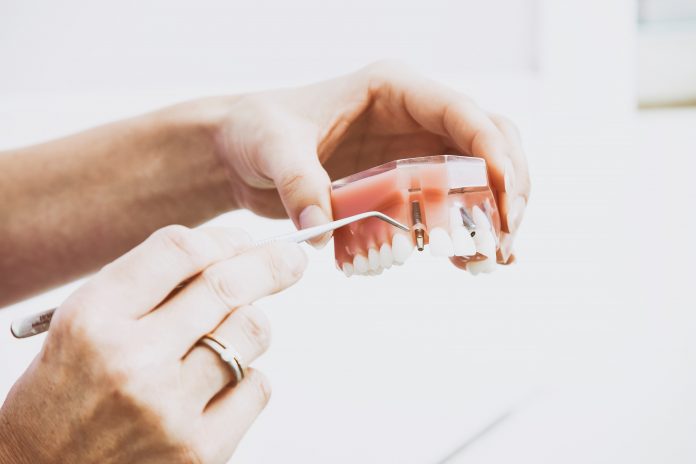Essential to overall health and comfort, is good oral health. Healthy teeth and gums enable a person to eat a variety of nutritious foods and speak clearly, which improves quality of life.
Older adults are more likely to develop oral diseases, which can affect their overall health. Gum disease in particular can include tooth loss, heart disease, stroke, respiratory problems, and diabetes.
Let’s take a look at some common oral health problems and their treatment options:
What are the most common oral health problems among older adults?
Tooth Decay
Depending on the severity of your tooth decay, your treatment options may include a filling or a root canal. When we look at tooth decay, we have to see how large it is, how much of the tooth has been broken down, but also the severity.
Gum (Periodontal) Disease
Periodontal disease is a chronic inflammatory disease triggered by a bacterial infection that ultimately destroys the supporting gums and bone around teeth. This may cause the tooth to become loose and unable to be saved.
When periodontal disease treatment has been evaluated during the years following pocket reduction gum surgery, patients who maintain the habit of inter-dental brushing sustain the most improved periodontal health.
Receding Gums
Mild gum recession can increase the chances of bacteria formation in pockets around the affected area. You may require deep cleaning treatments called “scaling and planing” to treat gum recession. During a scaling and root planing treatment, your dentist will clean plaque and tartar from your tooth’s surface and roots of your teeth.
Dry Mouth
When your mouth does not produce enough saliva, it becomes dry and uncomfortable. Saliva prevents you from developing an infection and helps to digest your food faster.
Treatment options for dry mouth may vary depending on the severity of the problem. Your dentist may recommend:
- Change Medications that Result In Dry Mouth
If your doctor suspects a certain medication may result in dry mouth, they may alter your dosage or change your medication completely.
- Suggest Products that Moisturize Your Mouth
Dry mouth medicines include prescription or over-the-counter mouthwashes, artificial saliva or moisturizers that act as a lubricant.
Oral Cancer
Oral cancer develops in the tissues of the mouth or throat. In the United States, there are more than 49,000 cases of cancer diagnosed every year. And treatment for oral cancer varies depending on type, stage, and location of cancer at the time of diagnosis.
- Surgery
Surgery involves the removal of a tumor and cancerous lymph nodes. Additionally, other tissue around the mouth and neck may be removed.
- Chemotherapy
Chemotherapy kills cancer cells with the help of drugs. The medicine is consumed either orally or through an intravenous (IV) line.
- Radiation Therapy
Radiation therapy is another treatment option. Your doctor aims radiation beams at the tumor once or twice a day, five days a week, from two to eight weeks.
- Targeted Therapy
Targeted therapy is another effective option in early and advanced stages of cancer. Targeted therapy drugs stick to specific proteins on cancer cells and interfere with their growth.
Poor Fitting Dentures
Dentures are an excellent solution for tooth loss. But if you don’t take care of your dentures, you may start facing problems. Here are your options with poorly fitted dentures.
- Recline Current Dentures
With time, the shape of your bones and gums that support your dentures may alter. Relining adjusts the internal surface of dentures. Your dentist takes an impression of your teeth and denture. Your denture is then sent to the laboratory to be relined.
- Make New Dentures
At times, well-worn dentures simply cannot be repaired, and in just a few appointments, you can get a completely new set of dentures.
Mouth Sores
Mouth sores break the tissue lining of your mouth, along the base of the gums or inside the cheeks or lips, but start at the bottom of the mouth or on the tongue.
Some treatment options involve the removal of the source of the mouth sores. Here are easy and effective treatments:
- Rinsing mouth regularly with salt water and baking soda
- Mouth rinses with cold water or applying ice to the ulcer
- Pain relief creams and ointments like Orajel and Anbesol
Tooth Erosion
Tooth erosion is the loss of tooth enamel resulting from an acid attack. Your teeth become sensitive to cold, hot, or acidic foods and drinks. So what can you do about it?
Dental erosion doesn’t always need treatment. But in other cases, bonding will be enough to repair it.
If you’re suffering from any of these problems, make sure you visit your dentist soon to get treated. Early intervention of a treatment will significantly help your oral and overall health.























